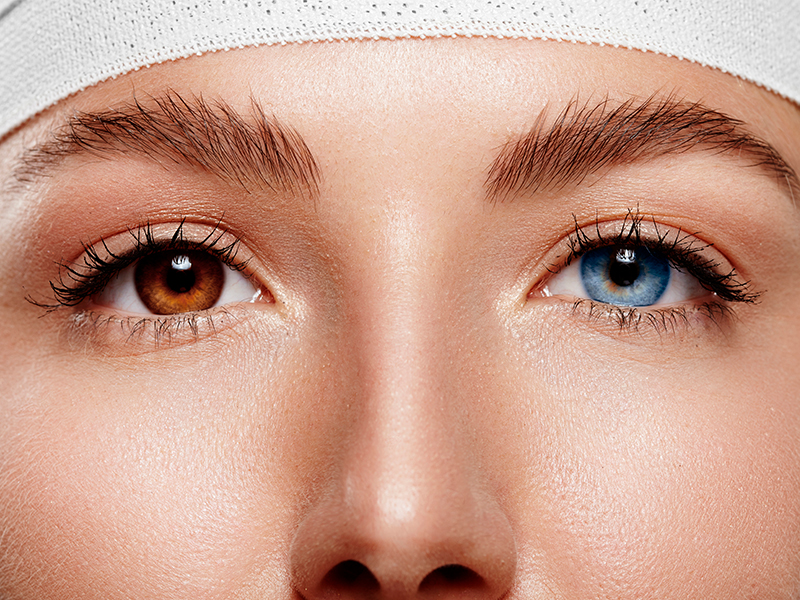All about the skin around the eyes and “drooping” eyelids
04/04/2025

19/03/2019
Many techniques have been put forward and implemented in an attempt to change eye colour for aesthetic reasons, which depends on the amount and distribution of a pigment called melanin in the iris. Some techniques—like the use of cosmetic contact lenses—are reversible and do not pose any risk. Others, like corneal pigmentation and the use of intraocular implants are irreversible and have demonstrated a high number of complications over time.
Laser
There is currently a procedure that involves the application of laser pulses to the iris surface with the aim of reducing the degree of pigmentation in this tissue. This explains why it only provides an unpredictable change in the darkest to a lighter tonality than the original, for example, from brown to greyish.
It's important to state that this procedure—which causes irreversible changes to the eyes—is not approved by any official healthcare body. However, what most worries eye doctors is the high risk of possible complications that have not been studied over the long term and that may end up causing damage to the patients’ visual health.
Complications
One of the main complications is pigmentary glaucoma, due to increased intraocular pressure secondary to the release of pigment from the iris which this procedure induces. Glaucoma may lead to an irreversible loss of vision requiring indefinite medical treatment and, potentially, surgery in cases that don't respond well to treatment.
Another complication, which is expected when any degree of natural pigment is extracted from the eye, is photophobia or a chronic, unusual intolerance to light—also caused by changes to the size of the pupil.
Likewise, temporary intraocular inflammation may occur, and as treatable as it is, it may also leave unexpected consequences.
An individual's desire to transform the parts of their body they like least, for example, their eye colour, may lead them to seek “solutions” that are not free from considerable risks and that, in a percentage of cases, lead to irreversible changes to a sense as precious as our eyesight.
Dr. Federico Trejos